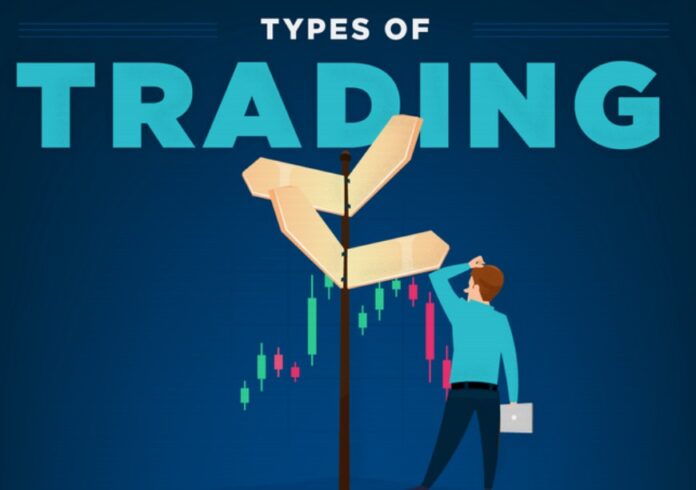When it comes to successful trading, the importance of the right broker should not be underestimated – even if it does not guarantee profits.
But what is actually meant by a broker and how can successful trading be done with it? The following article explains it.
The function of the broker in trading

In the field of trading, the broker acts as a kind of intermediary between the seller and the buyer of a financial instrument. As a rule, a broker provides a trading platform for this purpose. The settlement of the respective transaction then takes place via this and an electronic network.
The popularity of brokers in trading has been growing rapidly since the 1990s. Through them, both buying and selling are significantly facilitated compared to telephone trading, which was common in earlier times. For his work, the broker receives a commission or charges a fee.
These are the advantages offered by a broker
Online trading is particularly convenient, since making changes, checking prices and placing orders can be done completely independent of location. So, of course, the trades can be executed much faster, which benefits the volatility to a great extent.
Compared to conventional brokers, such as banks, trading on the Internet is also usually much more cost-effective.
The tasks of the broker

The broker, such as stock broker europe, mainly takes on the task of accepting the trader’s order and executing it accordingly. The order is considered executed only when it has been successfully placed on the market by the broker.
There is a legal obligation for the brokers to always offer the best possible execution of the order for the investors. If the order is a market order, there is a high chance that it will be executed at the desired price. However, there are cases where the best execution can hardly be guaranteed, for example, when a large order requires several partial executions. Due to possible delays between the execution of the order and its actual placement, there is a risk of less than ideal execution prices.
However, a good broker does not only execute the order for the trader. It also provides him with various services and tools that make trading possible. These include market news and analysis tools.
Basically, trading beginners should know that a broker is essential to trade. Participation in the financial markets is only possible with the help of such an intermediary. Buying shares directly from a company, for example, is not possible.
Commission and fee structures
Commission and fee structures are an important consideration for traders when selecting a broker. Generally, brokers charge a commission for each trade executed on behalf of a trader. The commission can be a percentage of the trade value or a flat fee per trade. In addition to commissions, brokers may also charge fees for various services such as account maintenance, data feeds, and market research tools.
Traders should carefully review and compare the commission and fee structures of different brokers to ensure they are getting the best value for their trading needs. Some brokers may offer lower commissions but have higher fees, while others may have higher commissions but lower fees. It’s important for traders to understand the costs involved and choose a broker that aligns with their trading goals and budget.
Market Orders, Limit Orders, and Other Trade Types

When it comes to trading stocks, ETFs, or other financial instruments, investors have various order types at their disposal to execute trades. Understanding these order types and their implications can significantly impact an investor’s trading strategy and outcomes. The most common trade types include market orders, limit orders, stop orders, and stop-limit orders.
Market Orders:
A market order is a request to buy or sell a security at the best available price in the current market. Market orders are executed almost immediately, as long as there are willing buyers and sellers in the market. This order type is the most straightforward and ensures the quickest execution. However, because the order is filled at the best available price, investors may not know the exact price at which their trade is executed, which can lead to potential price slippage, especially in volatile markets.
Limit Orders:
Limit orders allow investors to specify a maximum price they are willing to pay when buying or a minimum price they are willing to accept when selling a security. This order type provides investors with more control over the execution price but may not guarantee immediate execution. If the specified price is not met or there is insufficient liquidity, the limit order remains open until it is either filled or canceled by the investor. Limit orders help minimize price slippage and can be useful when trading illiquid or highly volatile securities.
Stop Orders:
Also known as stop-loss orders, stop orders are designed to limit an investor’s loss on a position. A stop order becomes a market order once the specified stop price is reached or surpassed. For example, a stop order can be placed to sell a security if its price falls to a specific level to minimize losses. While stop orders can be an essential tool for risk management, they are subject to price slippage and may not guarantee a specific exit price.
Stop-Limit Orders:
A stop-limit order is a combination of a stop order and a limit order. It becomes a limit order when the stop price is reached or surpassed. This order type allows investors to have more control over the execution price, as the limit order will only be executed if the specified price is met. However, like limit orders, stop-limit orders do not guarantee execution and may remain open if the specified price is not met.
Understanding these different trade types and their characteristics is crucial for investors looking to execute trades with precision and manage their risk effectively. Choosing the appropriate order type depends on factors such as market conditions, liquidity, and an investor’s specific trading strategy and risk tolerance.
Broker for best possible control

Depending on the respective financial instrument, trading via the house bank is also possible in some cases, but this is not only associated with higher costs, but also always with a certain loss of control. After all, the reactions to price changes are much slower with this option than with a trading broker.
Investors should also not neglect that the brokers are legally also involved in investor protection. They are obligated to carry out the inquiry of certain characteristics of their potential customers, before they agree to a business relation.
In addition, this information must meet certain requirements. The regulatory authorities supervise the respective processes.









